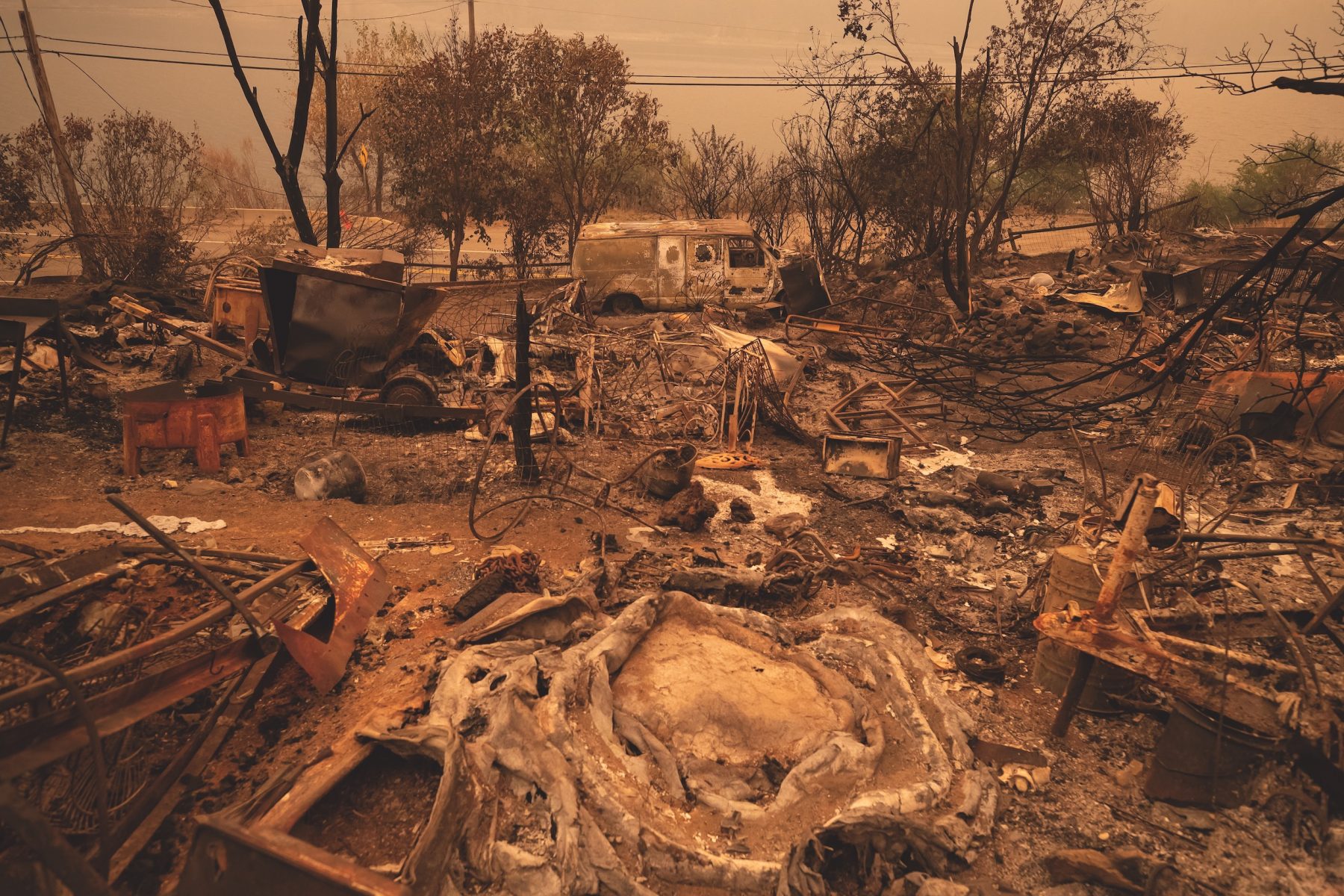The Thompson, Nicola and Cariboo regions of British Columbia, where I live, had an especially rough 2021. From the pandemic and the ever-accelerating opioid crisis, to forest fires, floods, freezes and the discovery of Indigenous children buried in unmarked graves, we were hard hit and local communities rallied to support each other.
But throughout the year, community members repeatedly asked: where is the church?
You may unsubscribe from any of our newsletters at any time.
To recap our trauma: on May 27, 215 unmarked graves of Indigenous children were reported at the former Kamloops Indian Residential School. On June 30, a wildfire decimated the entire community of Lytton. Evacuees were displaced to our local emergency support services and to the Tk’emlúps te Secwepemc Powwow Arbour. Over the next two months, smoke and fire continued to contaminate and burn as a result of drought conditions.
The skies finally cleared of wildfire smoke in September, marking the long-awaited opportunity to rebuild Lytton. But on Nov. 15, unprecedented river flooding washed out communities and highways in the Nicola and Fraser Valley regions. Thousands of displaced people evacuated to Kamloops, while others fled into the Lower Mainland. Kamloops ran out of rooms, so folks were sent to motels as far north as Prince George — 525 kilometres away.
The last straw was in December, when an Arctic breeze of high pressure hit the region; the deep freeze killed a well-known homeless man, owing to lack of local shelter beds. Meanwhile, the B.C. Coroners Service reported that 2021 was the province’s deadliest on record for opioid overdoses.
As a longtime non-profit co-ordinator, I responded to each of these traumatic events. I serve on various committees that represent all levels of government, including Indigenous governance, school districts and universities, health services, non-profit agencies, independent consultants, concerned citizens and corporate sponsors. Our collective purpose is to organize a co-operative system that can meet the short- and long-term needs of individuals, families and neighbourhoods. These meetings are responsive, frequent and well attended by everyone — except for the church.
In a sermon last November, Rev. Steve Filyk of St. Andrew’s Presbyterian in Kamloops urged his congregation to help flood victims. A Canadian Press reporter attended this service and wrote an article about it. As a member of this congregation and after months of ongoing exposure to highly stressful events, I felt that Filyk’s sermon strengthened my faith.
Other responses to the article, however, were more critical. The comments on social media were stacked, hand over fist, with condemnations about the lack of actions by local churches. One theme emerged: “Open the churches to the displaced. You don’t pay property taxes, you claim to care and it’s the least you can do.” Ouch.
In a post-Christendom era, the optics for churches aren’t good.
Kamloops has a population of 90,000 and is home to about 40 churches. As a former supportive housing manager, I know that in order to open a physical space as a shelter, policies must be in place to keep everyone safe. A handful of churches, especially those in neighbourhoods that are home to larger populations of unhoused people, do play active roles in serving the needs of the marginalized.
The contribution of churches outside these catchments, however, is unknown to the general population. I hate to write this, but many people think “crickets” when they consider the church. Churchgoers know the generous charity of our congregations, but the general public does not — highlighting a gap in community relations that prevents the church from being neighbourly.
Secular non-profits have been on the front lines from the get-go. Some of their immediate responses included the distribution of clean water, non-perishable food and medical supplies, as well as providing space for vaccination clinics and co-ordinating volunteers. These same agencies provided funds for rebuilding, helped organize education for children who lost their schools, assisted residents with insurance claims, sheltered displaced animals and helped communities to plan for future disasters.
More on Broadview:
- After more than 30 years, this clergy abuse survivor is finally being heard
- Manitoba’s first medically assisted death in a church was an ‘intimate’ ceremony
- Quebec’s plan to yank its Ethics and Religious Culture program is dangerous
I know that churches do serve the wider community, but it is difficult for the public to find information; one has to be “in the know” to be informed of what outreach each church offers. In a post-Christendom era, the optics for churches aren’t good. Their virtual silence reinforces the notion that churches are siloed and have excused themselves from the disordered, complex, on-the-ground issues that continue to unsettle our community.
We, as Christians, have plenty to contribute toward community health and well-being. Besides the fact that we have buildings, charitable status, land, people, wisdom, lived and living experience and faith, we also have love. And because love is rarely mentioned by governments and non-profits, it makes for a powerful offering.
We in the church are in the right position to love our neighbours in tangible ways. We are able to partner with other agencies, and we are blessed with the frameworks to support co-operative planning. Following Christ’s example, we must make ourselves known to our communities through our actions.
And we must do it now, before the next disaster strikes.
***
Natika Bock is a mother, member of St. Andrew’s Presbyterian Church in Kamloops and Presbyterian seminary student at the Vancouver School of Theology, St. Andrew’s Hall.
This story first appeared in Broadview’s June 2022 issue with the title “Where is the church?”














Funny that those who oppose the Church are the first to want the Church when it is convenient.
Anne Graham Lotz said it best. “If we don’t give Him our attention, then He is going to allow things to happen to make us more and more desperate until we do cry out.”
Eventually, God will ignore us, because we ignore Him. As a loving God He’ll let us have our way. Until then we need to acknowledge Him for who He is.
Anyone who says “Open the churches to the displaced” are not thinking it through. To stay there for a few hours until other accommodation can be found might work. But churches would not have adequate toilet facilities for longer stays nor facilities for bathing. This would soon be, not only uncomfortable, but a health hazard (even prior to Covid times). Misery might like company, but that would soon wear thin after several days sleeping on the floor in a crammed church hall.